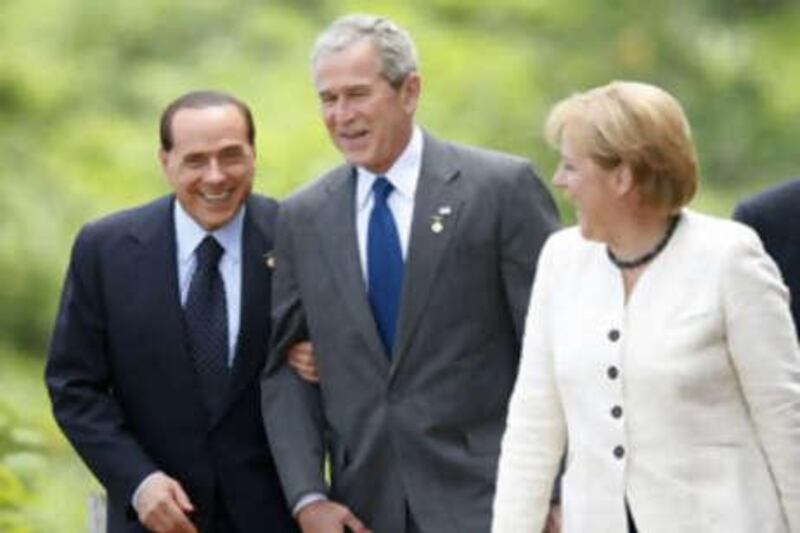TOYAKO, Japan // The G8 rich countries today said they want to work with other UN members to adopt a goal of at least halving greenhouse gas emissions by 2050. The final climate statement agreed by the Group of Eight leaders at a summit in northern Japan also said midterm goals would be needed to achieve the shared goal for 2050, but gave no numerical targets. The statement puts the focus of fighting global warming on UN-led talks to create a new framework for when the Kyoto Protocol expires in 2012, and papers over differences inside the G8 itself.
The UN talks are set to conclude in Copenhagen in December 2009. The careful wording of the statement ? always the most contentious part of summit negotiations ? was also unlikely to satisfy those seeking much more specific targets. Last year, the G8 club of rich nations ? Japan, Britain, Canada, Germany, France, Italy, Russia and the United States ? agreed merely to "seriously consider" a goal of halving global emissions by midcentury. The European Union and Japan have been pressing for this year's summit to go beyond that, and Brussels wanted clear interim targets as well.
But the US president George Bush has insisted that Washington cannot agree to binding targets unless big polluters such as China and India rein in their emissions as well. Global warming ties into other big themes such as soaring food and fuel prices that were being discussed at the three-day meeting at a plush mountaintop hotel on the northern Japanese island of Hokkaido, where 21,000 police have been mobilised. In another statement released on the second day of the summit, the leaders noted that the world economy faces uncertainty and downside risks, including that posed by a sharp rise in oil prices.
The leaders also agreed to bring major oil producers and consumers together in a world energy forum to discuss output and prices. The price of food and of oil, which hit a record high of $145.85 a barrel last week, is taking a particularly heavy toll on the world's poor. A World Bank study issued last week said up to 105 million more people could drop below the poverty line due to the leap in food prices, including 30 million in Africa. "How we respond to this double jeopardy of soaring food and oil prices is a test of the global system's commitment to help the most vulnerable," the World Bank president Robert Zoellick said yesterday. "It is a test we cannot afford to fail."
To help cushion the blow, officials said the G8 would unveil a series of measures to help Africa, especially its farmers, and would affirm its commitment to double aid to give $50 billion extra in aid by 2010, with half to go to the world's poorest continent. The summit ends tomorrow with a Major Economies Meeting comprising the G8 and eight other big greenhouse gas-emitting countries, including India, China and Australia. *Reuters





